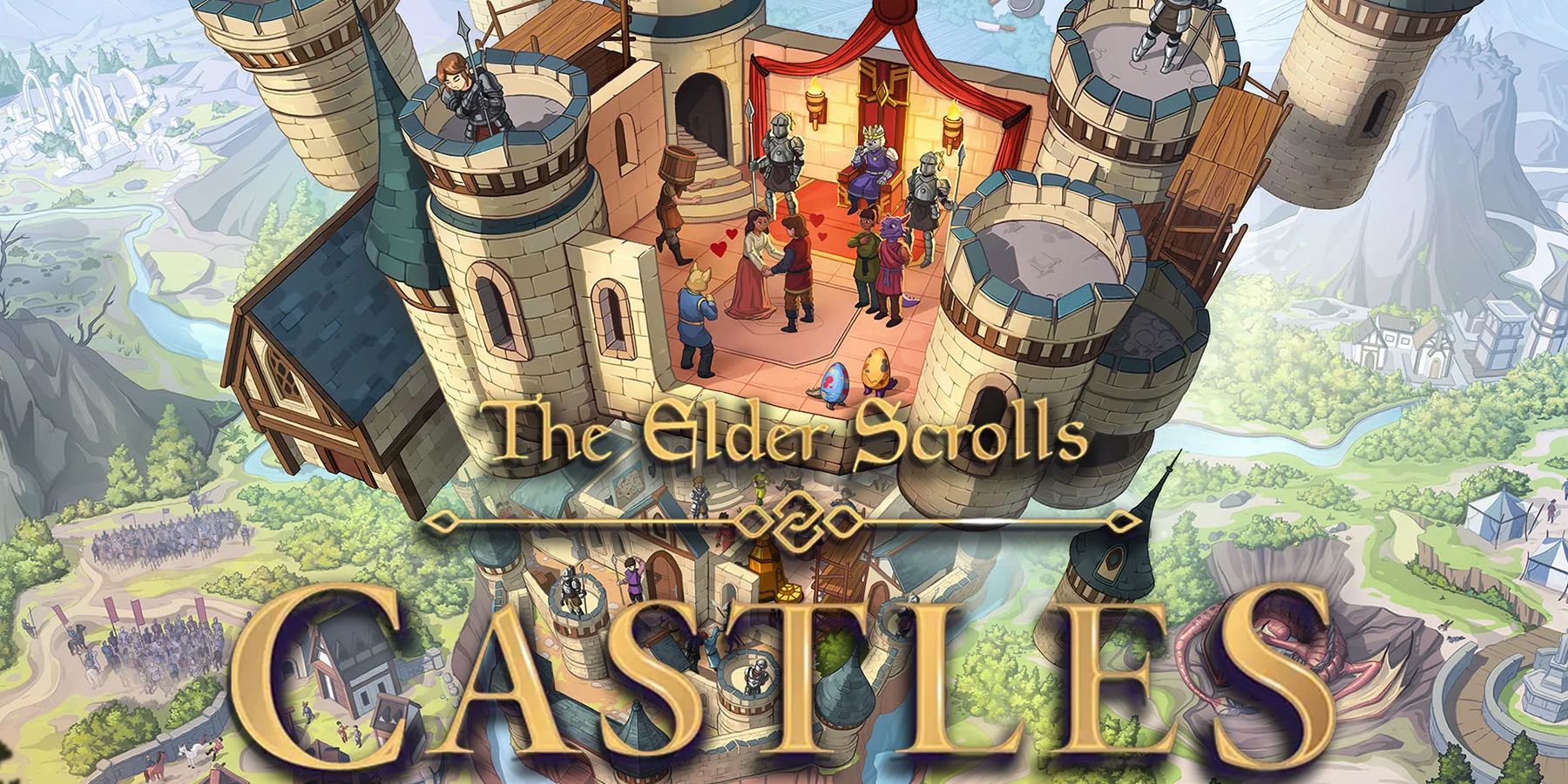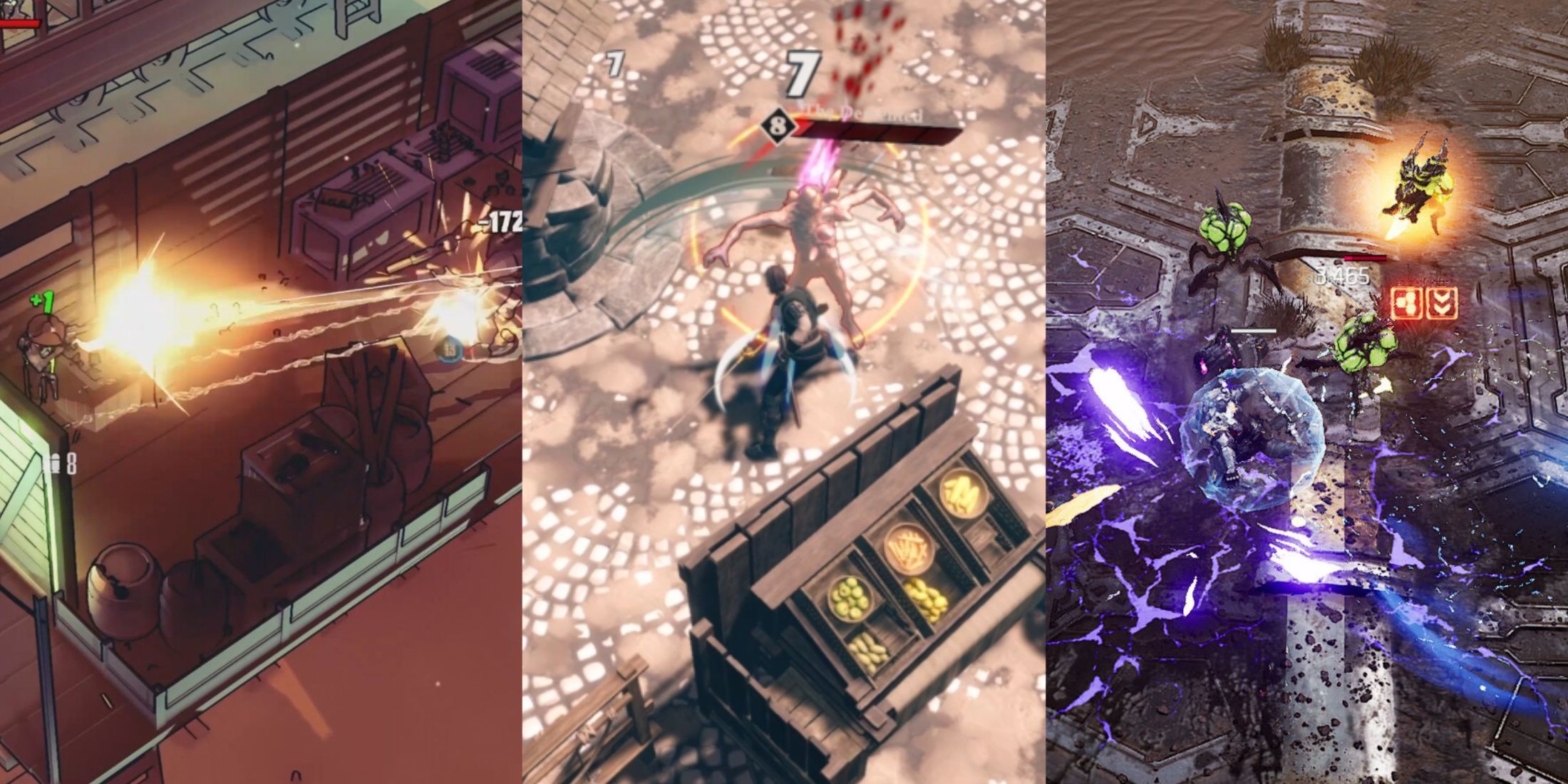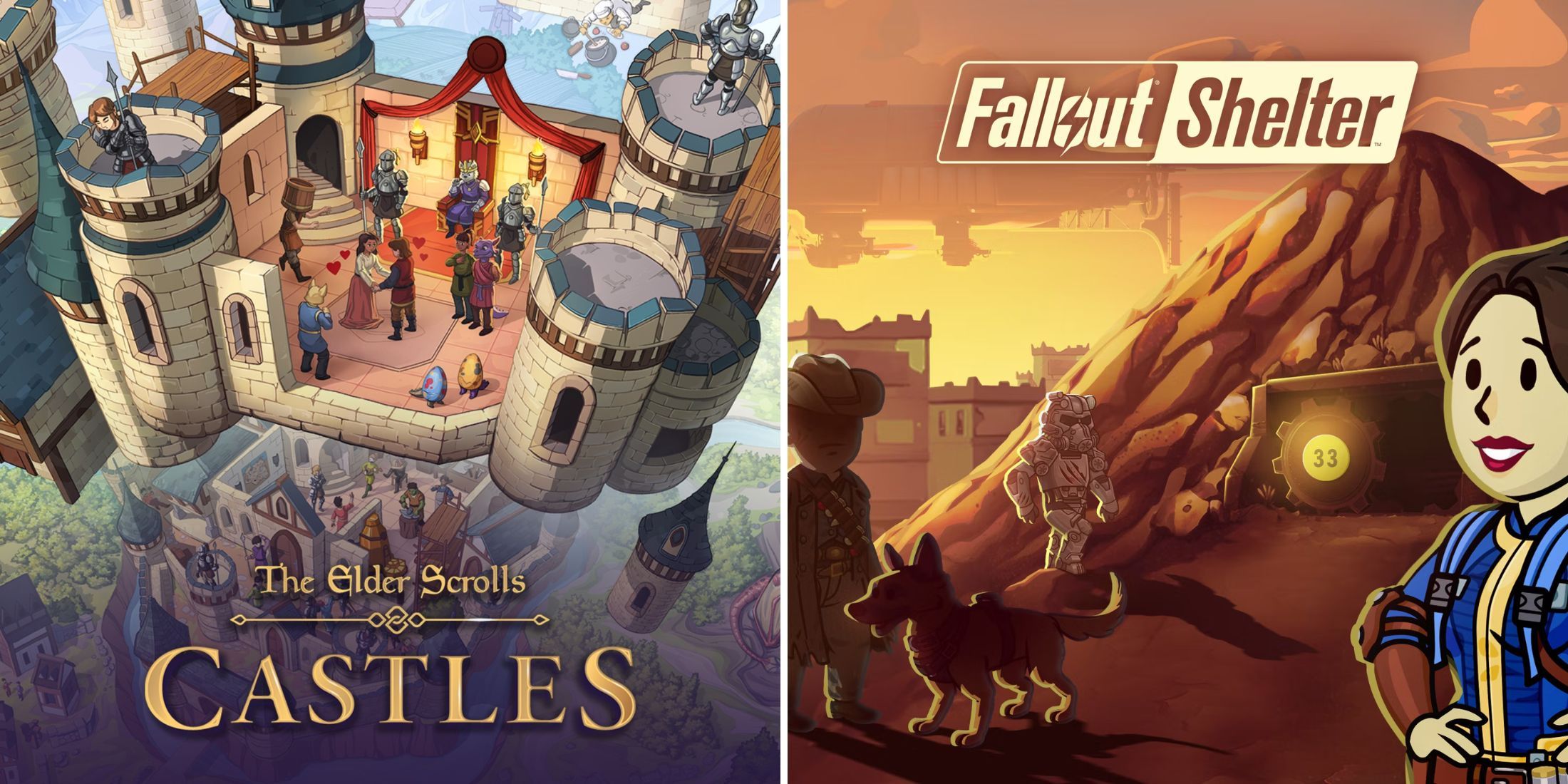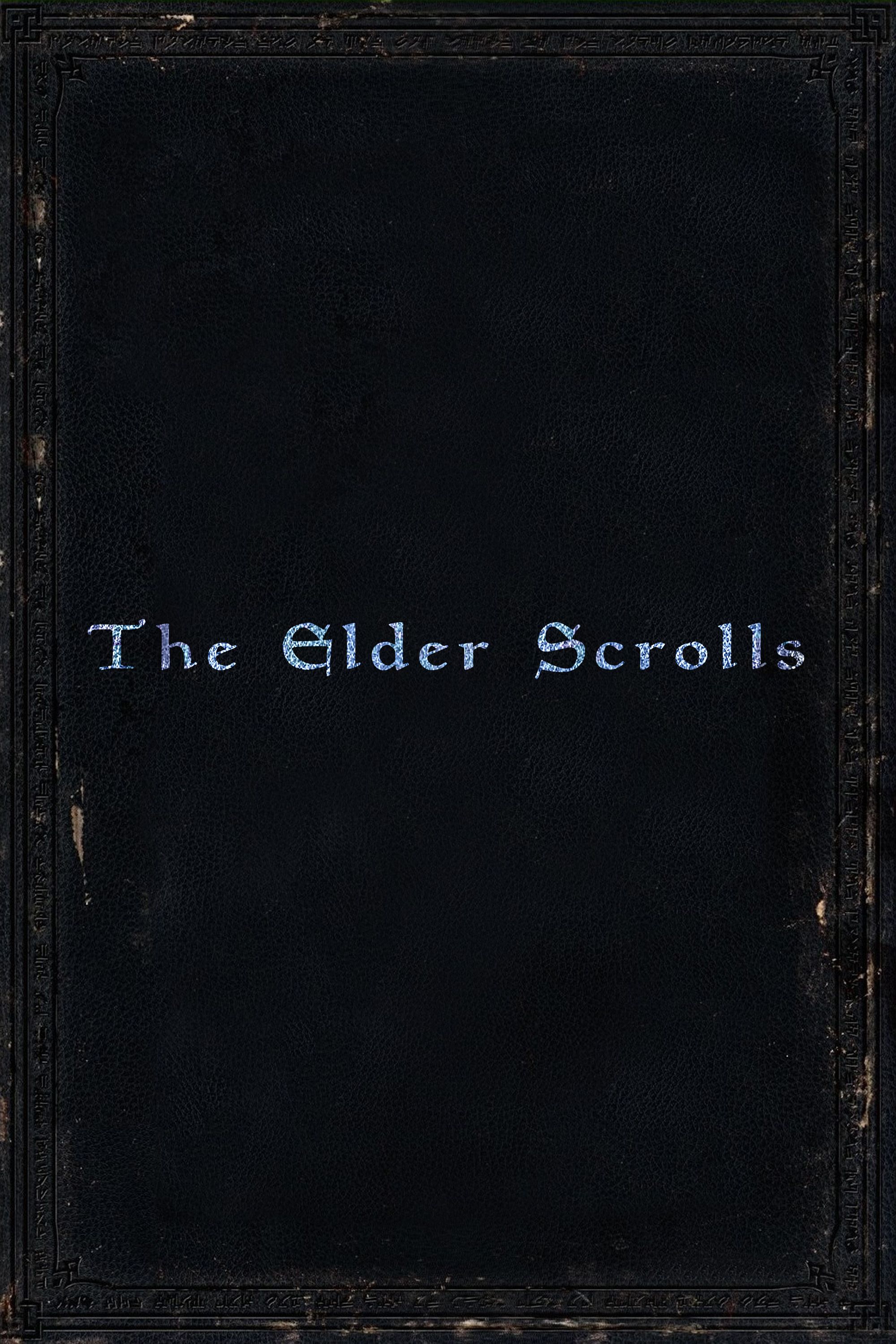Highlights
- The Elder Scrolls: Castles is a management simulator with combat elements, similar to Fallout Shelter, with players ruling a kingdom in Tamriel.
- Both games require players to optimize the traits and stats of subjects or dwellers, such as health, armor, and combat abilities.
- Oil and power play crucial roles in both games, being essential resources for keeping the castle operational and residents happy and productive.
One of the most surprising launches that acclaimed game developer, Bethesda, did in 2024 was the mobile game The Elder Scrolls: Castles. This spin-off title’s core gameplay is overseeing a castle in Tamriel, ensuring one’s subjects are satisfied, heirs are up to snuff, and one’s warriors are well-equipped for their battles. The Elder Scrolls: Castles is essentially a management simulator with combat elements, and it shares some DNA with another mobile Bethesda title: Fallout Shelter.
This game isn’t The Elder Scrolls franchise’s first foray into smartphone gaming. It released The Elder Scrolls Legends, a collectible card game, and The Elder Scrolls: Blades, a linear action RPG with roguelike elements. These games have seen moderate success so far, but it seems like Bethesda wants this beloved console and PC franchise to become even more successful in the mobile market. As such, it took a page from Fallout Shelter, one of its more popular games for the format, to create The Elder Scrolls: Castles.

The Elder Scrolls: Castles Officially Announced
Bethesda officially announces The Elder Scrolls: Castles nearly four months after soft-launching the colorful Fallout Shelter clone.
How The Elder Scrolls: Castles is Similar to Fallout Shelter
The Elder Scrolls: Castles shares a core gameplay mechanic with Fallout Shelter, which is management simulation. In Fallout Shelter, the player is the vault overseer who ensures that their growing number of vault dwellers get enough power, food, and water. They can upgrade their vault by adding new rooms with different functions. The Elder Scrolls: Castles works similarly. The player is a ruler of a kingdom in Tamriel and they’re tasked to keep their subjects well-fed, productive, and happy.
The player can also build new rooms with different purposes. Some Work Stations create resources, like Oil Presses and Mills. Others improve happiness, like art studios and bookcases. There are also ones that unlock certain features, like the War Table, which lets the player send their adventurers off on epic missions. Apart from base building, The Elder Scrolls: Castles and Fallout Shelter have a bunch of other similarities.
Subjects and Vault Dwellers
At their core, The Elder Scrolls: Castles and Fallout Shelter are all about keeping their constituents alive and well. Each subject and dweller has unique traits and stats that one can optimize for different roles. For Fallout Shelter, their capabilities are determined by their SPECIAL (Strength, Perception, Endurance, Charisma, Intelligence, Agility, and Luck) stats, while the subjects in The Elder Scrolls: Castles have health, armor, and combat stats. They have separate traits, which further define their role in the castle.
For example, Headstrong characters make everyone working at the Furnace and Workshop better at their jobs, while Charming subjects often distract their coworkers. A consistent way to increase the population is also through breeding. Players can build beds in both games to get their compatible characters to reproduce.
Oil and Power
Fallout Shelter’s Power and the Elder Scrolls: Castles' Oil function pretty much the same way.
- Oil: This keeps the ruler’s castle operational, as it’s used to light workstations, which will, in turn, keep workers productive. It can also be traded for other advantages. This can be farmed by workers through oil presses.
- Power: Each room in the vault needs power to keep residents warm, happy, and productive. This can be generated mostly through dweller-operated Power Generators.
While The Elder Scrolls: Castles and Fallout Shelter do share the same DNA, the newer game seems to be a step up from the latter. This is because it introduces new features like Rulings, which essentially have the ruler making sweeping decisions like settling subject disputes and trading with other kingdoms. The combat in this game is also more in-depth, letting the player have more control over their characters in battle compared to Fallout: Shelter. However, only time will tell if this game will reach the heights of its highly successful peer.




